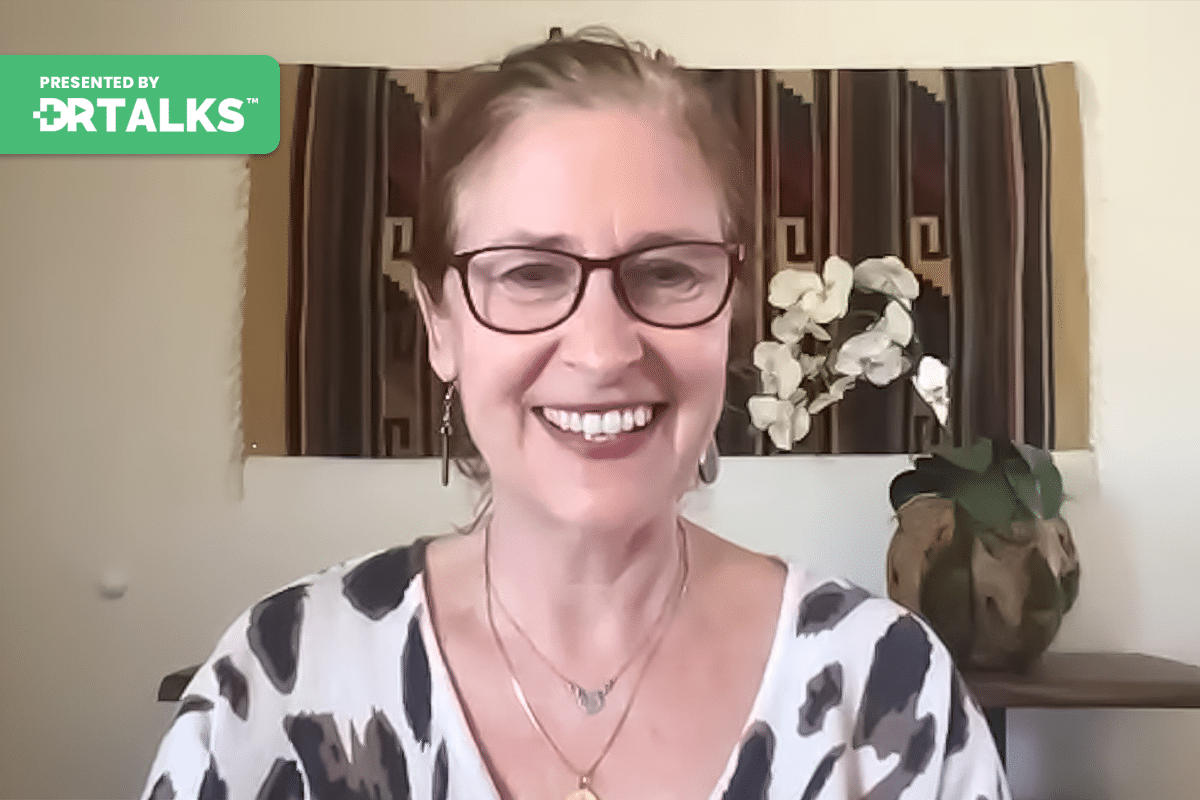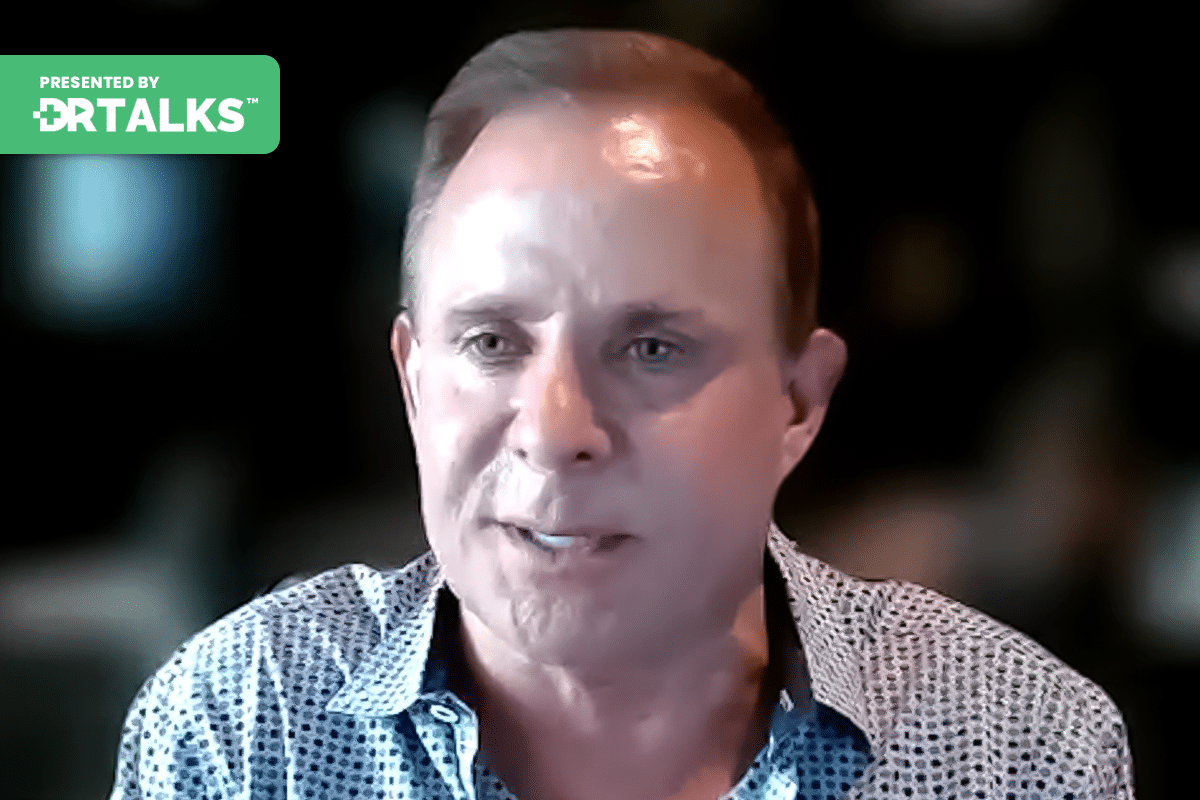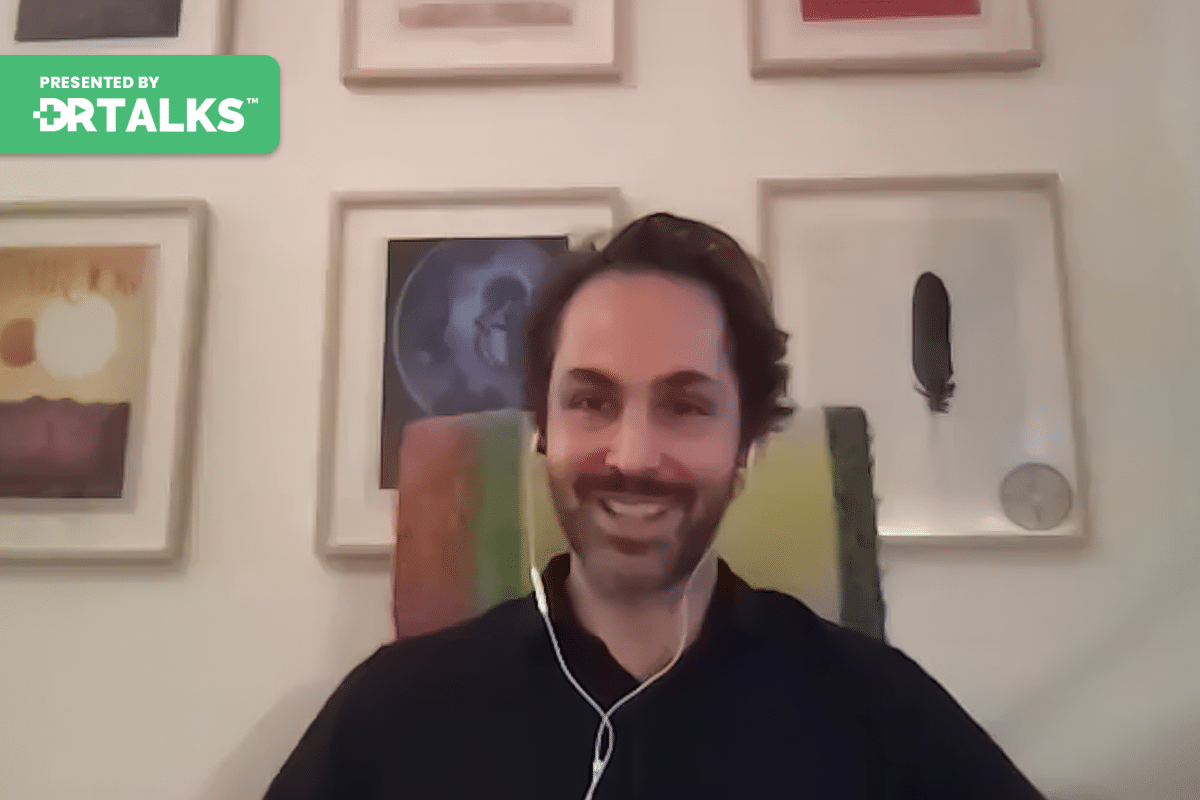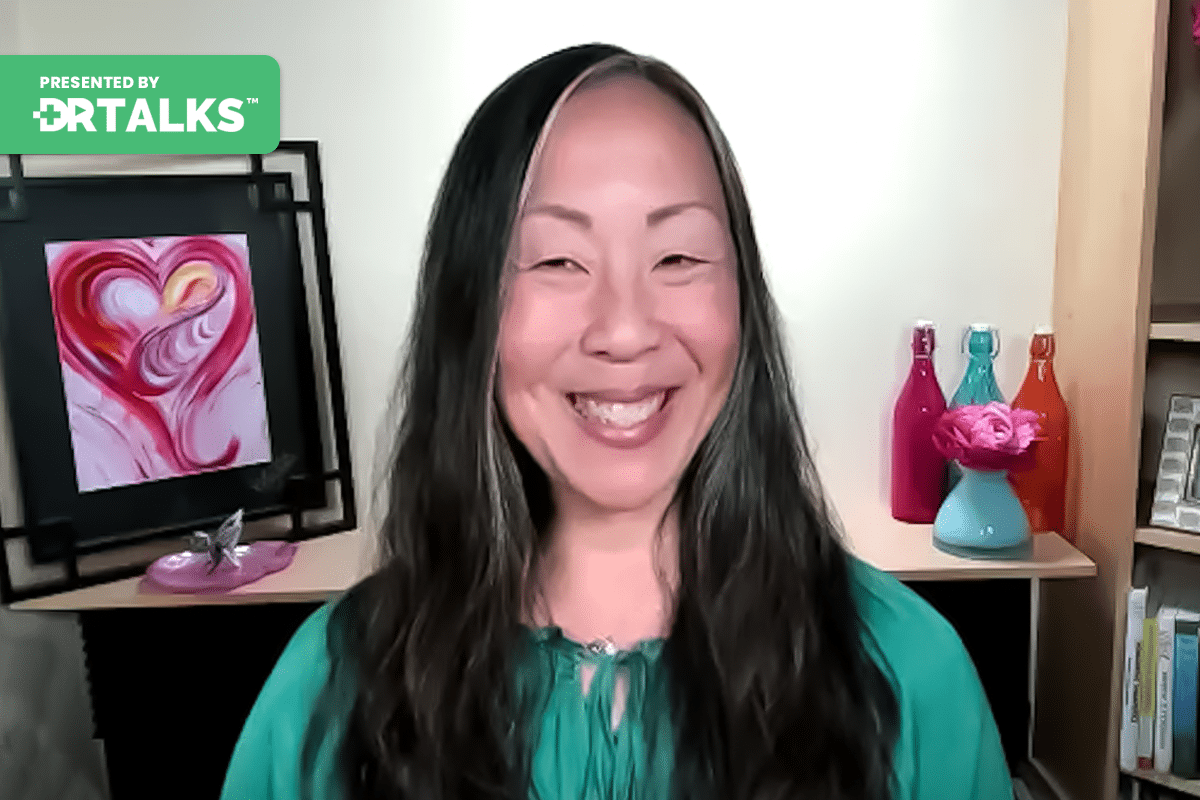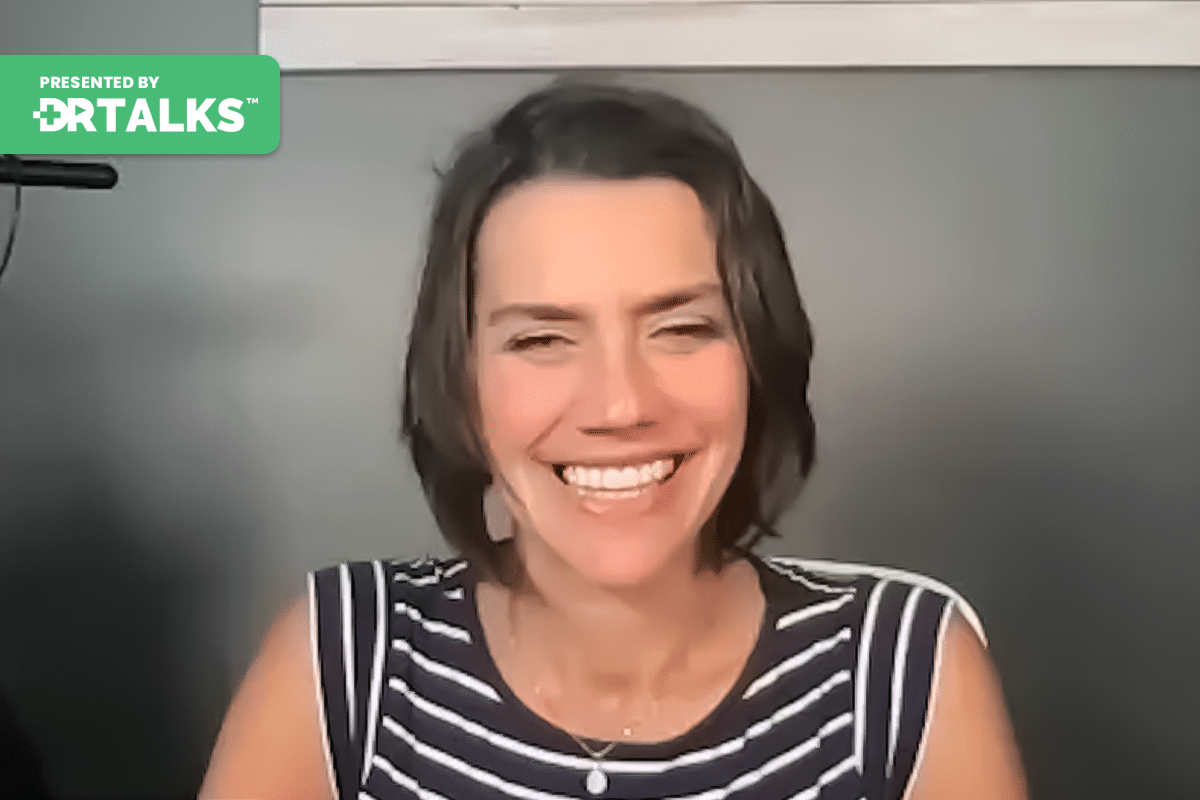Join the discussion below
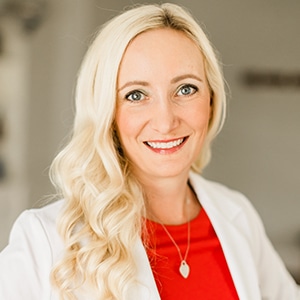
Dr. Jenny Pfleghaar is a double board certified physician in Emergency Medicine and Integrative Medicine. She graduated from Lake Erie College of Osteopathic Medicine. She is the author of Eat. Sleep. Move. Breath. A Beginner's Guide to Living A Healthy Lifestyle. Dr. Jen is a board member for the Invisible... Read More

Dr. Darin Ingels is a Licensed Naturopathic Doctor, Author, International Speaker, and leading authority on Lyme disease. He is a former Lyme patient who overcame his own 3-year battle with Lyme disease, after having failed conventional treatment and became progressively debilitated. Dr. Ingels found that proper diet, lifestyle management and... Read More
- Understand how infectious diseases can trigger Hashimoto’s and identify the microbes most frequently associated with the condition
- Explore whether treating the underlying infection can fully address Hashimoto’s disease, alongside potential treatment strategies
- Learn about low-dose immunotherapy and its potential benefits in managing Hashimoto’s disease
Related Topics
Antibodies, Autoimmune Disease, Autoimmune Effect, Chronic Illness, Diabetes, Diagnosis, Dysbiosis, Epstein-barr Virus, Germ Theory, Gut Health, Hashimotos, Helicobacter Pylori, Immune System, Infection, Infections, Investigation, Lyme Disease, Microbes, Ms, Remission, Terrain, Thyroid, Treatment Strategy, TriggersJen Pfleghaar, DO, FACEP
Hello. It’s Dr. Jen. Welcome back to The Heal Your Thyroid and Reversing Hashimoto’s summit. So I’m really excited today to talk to Dr. Darin Ingels. He’s a licensed naturopathic doctor, author, international speaking and the leading authority on lines disease. And this is why we have the privilege to talk to him today about the infectious causes of Hashimoto’s disease. Now, he is also a former Lyme patient himself. So this makes him even better at talking about infectious diseases and what to do with them. Hi, Dr. Ingels. Could you please tell us about your story and welcome to the summit.
Darin Ingels, ND
Oh, well, thank you again for having me. Yeah, my story is I was a Lyme patient, so I went to medical school in Seattle and after I finished residency, I moved to Connecticut. And for people who don’t know, Lyme disease is named after Lyme, Connecticut, which is a city in Connecticut where they discovered this disease back in the late seventies. And literally two weeks before I opened my own practice, I got Lyme disease and I had classic Lyme disease. So everything you read in a medical textbook, I had the big bull’s eye rash on the back of my leg. 105 fever, headaches, joint pain, neuropathy, you know, the whole works. And I identified it pretty quickly. And got treated right away. And I felt fine, really, after four days of being on doxycycline, but having getting bit two weeks before I opened my own business.
Anyone who’s ever opened their own business knows what it’s like when I couldn’t afford staff. So I was doing everything. I was seeing patients and doing my books and ordering supplements and all that. And eight months into that schedule of working, you know, six, seven days a week, ten, 12, 14 hour days, I started to relapse. I got symptoms again. And I said, okay, I’ve been through this before. I know what it’s like. And by went back on doxycycline for a month and it did nothing. And then I changed to visit the Amazon for a month and it did nothing. And then I started working with a local Lyme specialist, and we started cycling through various different antibiotics, and I got worse and worse. So nine months into that, having lost 30 unintentional pounds and having a destroyed gut, I knew of a doctor in New York City named Doctor Zhang, Chinese medical doctor and acupuncturist, and I had known of him. I had seen patients over the years that had worked with him and did very well. And, you know, part of it was realizing that I really wasn’t doing everything I had been telling my patients to do right. Like doctor sometimes were words patients. And I wasn’t eating well and sleeping well and doing all the things I know I needed to do to help my immune system deal with the infection. So, you know, part of it was the reminder. And then he started me on some Chinese herbs. I was doing acupuncture. And within a month, I felt 80, 85% better. So I really from there started, you know, taking stock of my own health, doing all of these different things, managing my diet, my nutrition, getting good sleep. And it still took about two years, but I eventually got to a point where I was 100% symptom free. So, you know, like most of us, we have our own personal experience of the health challenge. You know, I started applying what I did to myself, to my patients. I found that they got better or faster. And now, you know, 24 years later and over 8000 Lyme patients, you know, I’ve kind of figured out that there is a path to help people overcome, not just Lyme, but really chronic illness.
Jen Pfleghaar, DO, FACEP
Yes, absolutely. And I love that you brought up the point that it wasn’t just the Lyme disease, it was everything else, like opening up a business and stress. And then you just weren’t getting better. So you know a storm. Yeah. And that’s the hard part, is that a lot of these times that when we get sick or we crash, you know, it’s multi-factorial and just the antibiotic isn’t enough for your body to heal. So I think it’s great that you turn your battle into victory by helping so many people so it’s really great. So when we look at Hashimoto’s thyroiditis, how can infectious disease play a role in developing Hashimoto’s?
Darin Ingels, ND
You know, I think it’s a great question and I think when you look at autoimmune disease as a whole, you know, it’s interesting. I mean, if you go to the endocrinologist and they do your blood test and they see the thyroid antibodies and they say, okay, you got Hashimoto’s, they go, okay, great, I got a diagnosis. I understand the problem. Why? They go, Oh no, no, bad luck, bad genes, bad environment, who really knows? But if you start digging into the literature, you know, we’ve seen of course, you know, there’s a lot of other potential causes. But one of the causes can be infection. And I think, you know, we’re all kind of geared to think that if we get infection, we feel acutely sick. It’s one thing if you get, you know, a cold virus or you get the flu and you feel those physical effects, you identify that you’re sick, but it is possible that you can get an infection and you don’t necessarily spike a high fever or you don’t get the swollen glands, you don’t get the chills. You don’t get a lot of these things that we typically think of as being signs that our immune system is fighting something.
So when we get in the presence of some microbes, it can sometimes activate a different part of your immune system. That’s not necessarily that part that fights the infection, but can actually flip the switch and start producing more autoantibodies to different tissue. So there’s a concept in immunology called molecular mimicry. And what that means is that as your immune system identifies some particular part of that bacteria or that virus that it’s trying to eradicate, it may share something structurally similar to what’s in your own tissue. So in the case of Hashimoto’s being your thyroid, you know, if your body’s trying to fight Helicobacter pylori, which is a common bacteria that causes stomach, upset, stomach and heartburn and reflux, now the body’s trying to get rid of that bacteria, but now it’s accidentally attacking your thyroid. So it can be really kind of a combination of the infection itself and the autoimmune effect of what that infection does. And what complicates this, I think, even more is that so many things that our body reacts to aren’t necessarily pathogens. They can be things that are part of our normal flora. So I think if we think beyond germ theory, I’m like, okay, well, there’s a germ and there’s an effect. What if it’s deeper than that? What if it’s not just about the germ and it’s really about how the terrain is interacting with that microbe? I mean, I suppose we could probably have a very long, deep discussion on germ theory and how much that contributes to poor health. But I think it’s important to recognize that when the terrain is set and there’s exposure to these different microbes, there is that possibility that can activate that part of your immune system that starts going after your thyroid. So in my practice, you know, when someone comes in with Hashimoto’s, you know, we’re always looking course at a lot of different factors.
But it’s important for me to kind of go through these different tests and sometimes their blood test or stool test or urine test to try and help identify. Has there been exposure to potentially one of these microbes that might be an underlying cause because if there is now that gives us a different treatment strategy to approach that, hey, maybe we need to bring the load of that organism down, or maybe we do need to eradicate that infection completely. But I think it’s something that endocrinologists don’t think about, infectious disease doctors don’t think about. And let’s be honest, most doctors don’t think about, but whether it’s Hashimoto’s M.S. Diabetes, I mean, you can go down the litany of, you know, autoimmune diseases and we can find that there’s some microbe that’s a potential underlying trigger for each of those different illnesses. So it just adds another layer of investigation that needs to happen between, you know, you and your doctor so that you can start looking deeper at some of these potential triggers.
Jen Pfleghaar, DO, FACEP
Yes. And with them, the microbes, what, you know, our listeners out there have to realize is that we’re filled with bacteria and viruses. But, yes, if the terrain is a certain way that one of them grows or creates a dysbiosis or is reactivated certain viruses, that is when you kind of have to go after it because it could be a trigger for the autoimmunity. So my story personally, I had Hashimoto’s in remission. Now my antibodies are normal, they’re zero. But I always look back because it developed in high school and I’m like, What triggered this? Did I have a trauma? I know I had mono. Was it gluten sensitivity? Was it mold? Because now I do have mycotoxins and it was probably from my childhood home.
So when you think about it, you know, don’t get overwhelmed because germ versus train theory, like you said, do all the things to make your terrain very a nice place to have the right balance of microbes there. You know, keep stress low, make sure you’re sleeping. So that’s what we’re talking about when we’re talking about terrain. But it’s absolutely crucial to find out, okay, I have an autoimmune disease, but why? And I think that is the frustrating thing for people out there that have a new diagnosis. Like you said, whether it’s M.S. or Hashimoto’s, like, we need to figure out the why, because otherwise we really can’t stop progression. So when we’re talking about specific, my microbes you brought up H pylori could you talk about the other microbes that are more commonly associated with Hashimoto’s?
Darin Ingels, ND
Sure. So H pylori is one Epstein-Barr virus. Epstein-Barr virus has actually been associated with Hashimoto’s, it’s been associated with M.S. and several other autoimmune diseases. And again, this is a common virus. You know, up to 80% of adults have exposure to Epstein-Barr virus. And if you do a blood test, you will find antibodies against Epstein-Barr virus. So again, is it the virus or is it something else that’s allowing that virus to be more activated? But Epstein-Barr virus is one that’s very well known. Lyme disease. Again, I work with a lot of Lyme patients and we know that Lyme can be a trigger. I can’t tell me how many people I’ve seen that never had a thyroid issue in their life. After they get Lyme, they develop Hashimoto’s or sometimes it’s hypothyroidism without Hashimoto’s, but more often that is Hashimoto’s. So, you know, there’s no, there’s no evidence in the literature for Lyme.
However, I’ve seen it in my practice over and over and over, and we don’t find any other, you know, microbial identifier. So we know that H. Pylori Epstein-Barr virus, we know that Lyme disease and really any of these potential co-infections. So if you get bit by a tick that carries Lyme, sometimes they carry something else. They can carry bartonella, they can carry Babesia, they can carry or Alicea Rickettsia. I mean, every time I go to a Lyme conference, I swear there’s like ten more things we figured out. Ticks carry and really any microbe potentially could be a trigger for autoimmune depending on the bug. But the other one that’s very common is Yersinia. Yersinia is a bacteria that again is often part of the normal gut flora. There are other strains of your Cynthia that we associate with food poisoning, but these other strains that are more common can be associated with Hashimoto’s as well.
So this is sometimes I get, well, we’ll do a stool test, help identify if there’s your stint in the stool. Some labs do offer blood testing where you can measure, you know, antibodies against Yersinia. So a lot of these you can detect through doing different types of blood test just to see, again, if you’ve had exposure. But, you know, be careful too, because just because you do a blood test and you see antibodies against Epstein-Barr virus or H. Pylori, that doesn’t necessarily prove that that’s the cause either. So it just helps us give us clues about, you know, have you had that exposure? Because if you’ve never had the exposure, you know, it seems unlikely that that might be a potential cause. But if you have had exposure and again, knowing from we know from research that this could be a potential underlying cause, again, it gives us a different direction to to potentially, you know, modulate your treatment. And again, you know, if this is part of your normal flora, killing the organism by itself probably won’t be enough. But again, like all these other underlying factors, which I’m sure you’ve talked with other speakers during the summit about whole body health, and it’s everything from sleep to movement to diet to gut health and so forth. But, you know, all of this really is important for, you know, overcoming Hashimoto’s.
Jen Pfleghaar, DO, FACEP
Yes, it is. And okay. Epstein-Barr for those that might not know what that is, it’s the kissing disease or mono. So mononucleosis and you know, that’s what it was called when when I was younger, it was a kissing disease or I remember in high school, oh, they have mono and you know, you’ve got to watch out for the spleen or they’re they can’t play football because they have mono. It’s the kissing disease. And it’s very common. But the other thing people have to realize is that viruses affect people in different ways, just like Lyme affects people in different ways. And that’s going back to the train and even even looking at the pandemic and and COVID and you know, who’s who knows that what autoimmune diseases are going to emerge from COVID in the next few years as that being another infection, infectious disease that is raising some autoimmunity issues and thyroid issues. I’ve seen in my practice.
Darin Ingels, ND
So yeah, I think COVID was just a great example though about, you know, is that the bug or is it the immune reaction to the bug? I mean, the virus by itself truly did nothing to anybody. It was the immune reaction to the virus. You know, you kept hearing about cytokine storm, right. Like this. Is that that really robust immune reaction that put people in the hospital and ultimately killed a lot of people. So it wasn’t really the virus that was causing damage to the tissue. It was the immune reaction to the virus that triggered, you know, this litany of symptoms. And we see this with a lot of other microbes, too, that it’s not necessarily how the microbes interacting with the tissue that causes the problem.
Again, it’s that immune reaction that really dictates, you know, how it’s going to manifest. So I think we kind of came I think the one thing if there was one good thing that came out of the pandemic, I think it really shined a light because we heard so many people having long COVID, you know, this sort of post viral post infectious dose problem because so many people are affected. I’m like, Well, yeah, we’ve seen this with Epstein-Barr virus. We’ve seen this with Lyme, we’ve seen this with so many other infections, I think at least brought a level of awareness to people that, Oh yeah, after I get over the infection, sometimes I’m left with a mess, sometimes it’s an immune mess, sometimes it’s a hormone mess, sometimes my sleep is a mess. So I think helps us understand more that, you know, once we’re on the back end of the infection, we’re not necessarily done with the illness. Again, we have all this other work we got to do.
Jen Pfleghaar, DO, FACEP
I agree. It really validated those people out there with long Lyme disease, you know, with chronic Lyme or people with chronic fatigue syndrome, you know, and these these different chronic symptoms that everyone kind of pushed them aside. And now there’s long haul. And so many people have it that we, you know, even conventional doctors have to, like, pay attention to it. But they’re still not that good at treating it. I see a lot of long COVID, but so does treating these infections. Will that alone treat the Hashimoto’s disease?
Darin Ingels, ND
Well, it’s part of it. I mean, treating infections is a big part of it. So, you know, the way I think of it, it’s like if you’ve got let’s just say Epstein-Barr virus is our our cause and you’ve got a million viruses circulating throughout your body and your tissue. If we can bring the load of that virus down, there’s less stuff to aggravate your immune system. So if we can change the load, we can alter the immune response. Now by itself will that be enough? Maybe. I find more often than not it’s not it. We’ll see improvement. So with Hashimoto’s specifically, if we start, you know, interview meaning with, you know, antiviral therapy, we’re doing other immune supportive therapies. Often we will see antibody levels drop, thyroid antibody levels drop. Do they completely zero by themselves? Not usually, but we’ll see improvement.
So we know that by lowering the load, we are starting to change the way the immune system responds. And I think, you know, just sort of cover maybe some basic immunology so that people understand, you know, we’ve got these cells in our body called T help ourselves and T helper cells are really kind of conductors of your immune system. So there’s what’s called th1, t helper one and T helper one. Cells are your direct scavengers when they see something that doesn’t belong, something for and it goes right after it, it munches it it eats, it gets rid of it. th2 cells. T Helper Two cells don’t do that. They basically they go over to the problem and they look around, go, well, hey guys, there’s a problem over here. Somebody needs to do something about it, but they don’t directly get rid of it. So really mostly what they do is they signal B cells and B cells are part of your immune system that make antibodies.
So it’s really complex and I’m trying to make this very simple, but if you think about th1 in th2 being kind of a seesaw where one goes up, the other goes down, that’s kind of how it works. So if you are th2 dominant, then your disposition towards allergy and honor immunity goes way up and in in that it can suppress t one so your innate ability to fight infection can go down. So when people get stuck in the state, they’re more susceptible to infection. So if you’ve already got an infection, it’s going to be harder for your immune system to deal with it on its own. And now you’re making all these antibodies, but they’re not necessarily the antibodies that are fighting the infection. They’re going off in other space, is doing different things and potentially creating more allergy and autoimmune problems and vice versa.
You know, if you have, you can have the opposite problem. You can be at one dominant and two deficient. So it really is about balance. And so I’m always think about how do we modulate the immune system? We don’t want to suppress the immune system. That’s not really our goal because in that, again, a lot of therapies that are immune suppressive don’t just target one part of your immune system. They target all of it. And then that can make the problem a lot worse. So we really are trying to find things that balance the immune system as a whole. And then there’s these other cells called T H 17, t h 17 cells are directly responsible for identifying microbes and t h 17 kind of throws a wrench in this huge one to, to balance. But again, more load, more microbial load in your body is going to activate more of these t h 17 cells and therefore it’s going to throw more of that balance of th1 and two off, even more so as we’re thinking about, you know, treatment. Yes, we want to get that bug under control. That’s going to be our first step because now we’re taking that pressure off your immune system. But beyond that, I think we just want to start thinking about nutrients and other strategies that are going to bring more balance to that. th1 and two levels.
Jen Pfleghaar, DO, FACEP
I’m glad you went into detail with ath1 and two. It’s very important for people to understand that it does need to be balanced out. And, you know, once again, when you’re looking at different microbes and how patients are doing with them and people are different because they have different answers. And you know, when we talk about patients that we treat like I will get some patients that their Hashimoto’s will just get better. If we treat they identified microbe, whether it’s Epstein-Barr or it’s a gut dysbiosis or a parasite, but then at the same time, is it just because we treated that infection? Probably not because I’m integrative medicine and you know, you’re natural pet that we’re going to be working on the other things at the same time. So it’s kind of I feel like I’m biased a little bit because I’m like, Yeah, it does work well, but we’re already working on all that other stuff. So, so all of that is just as important. So you kind of we’re starting to go into talking a little bit about different treatments for this. So what does some different treatments look like when we’re looking at infectious disease?
Darin Ingels, ND
Well, first and foremost, again, I know you’ve talked about this. You know, in the summer, I’m sure you know about the got now. Up to 80% of your immune function stems from the gut. So if your guts not functioning well, it’s going to be hard for your immune system to function well. And again, we have so much research that when your gut microbiome is imbalanced, your disposition towards autoimmunity goes up. And again, we can look at any autoimmune disease and find that there’s some element of, you know, dysbiosis. So it’s really important. I mean, of course, diet’s a big part of that, but also making sure that your gut ecology is healthy, you’re having good, healthy elimination. So that’s first and foremost. I mean, you can throw all the pills at the world you want to this, but until you deal with these foundational things, they’re not going to be nearly as effective. And there are some other nutrients and things that help, you know, balance, you know, that th1t to seesaw.
And the biggest one for me is glutathione. You know, we’ve got a lot of research that glutathione actually helps bring balance to th1 in th2 plus. You know, it’s such an important antioxidant. It’s a major part of how our liver detoxifies so it’s one of my go tos for anybody with autoimmune disease, but particularly for Hashimoto’s is that if we get people on you know good glorify on again that’s going to help reestablish that balance. We know that something like resveratrol resveratrol which a lot of it comes from Japanese knotweed, which ironically is a treatment we commonly used to treat Lyme disease and other infections. But resveratrol is another nutrient that we know can help bring balance to t, h one and t h to pick marginal, which is maritime. French maritime pine bark extract has also been shown to help, you know, balance th1 and two. So we’ve got these handful of nutrients and herbs that we can use to help bring that balance. And, you know, one of the biggest things that we’ve been using in our practice, probably for the last maybe it’s been eight or nine years, it’s what’s called LDI or low dose immunotherapy. And this is a therapy that was developed by Dr. Ty Vinson. He’s a medical doctor in Hawaii. And the concept behind it is that, again, if your immune system is treating these microbes more like allergens instead of pathogens, we can apply the same concepts that we do for allergy therapy to these bugs. So to kind of preface all this, there’s a therapy out there called LDA or low dose allergy therapy, which has been around since the 1960s. And you basically take things like mold and pollen and dust and cat and dog and you dilute it out hundreds of millions of times and you mix it with an enzyme called beta glucan a disease, and you give this little injection under the skin and can basically help turn off reactions to these different allergens.
And Dr. Vincent have been doing this in his practice for many years and again, kind of had the aha moment that oh the immune mechanisms actually seem to be the same. So if we can be successful at desensitizing people or turning off that overreaction the immune system to more than pollen, why can’t we do that for strep lime and all these other microbes? So I know the first person he ever tried with this was strep and he gave this patient a diluted dose of strep. Again, this is killed organism. It’s not alive. It can’t cause infection, but it contains all the little bits and pieces. Our immune system needs to help recognize what it needs to do to change the immune system. And he had a very successful outcome with this patient that had chronic strep. And from there it kind of grew and started trying it with different antigens, different microbes. And now, again, nine plus years later, I don’t even know how many antigens we have available, but there’s a lot. And I think again, the more we dig into the literature and understand how each of these different autoimmune conditions has an association with the microbe, you know, often we try it and see how it works.
And now there’s hundreds of doctors around the world that are starting to use this therapy. And what I really like about this therapy is that it’s not immune suppressive. If we if it’s going to help, often we see it within 48 hours of giving these doses. And, you know, when it works, it works really well. So for some people, it’s been a game changer. And again, I’ve had people where, you know, for Hashimoto’s specifically where we’ve done the Epstein-Barr antigen, we’ve done H pylori, we’ve done Yersinia. And in some cases, again, we see this dramatic drop not just in the antibodies but improvement in clinical symptoms. And at the end of the day, I know everyone watching this is what you want, right? You want to improve quality of life. You want your energy back. You want to feel good. And ultimately, yeah, we’d like to see those antibody levels drop, though we wanted to know that we’re controlling this autoimmune process. And again, this has just been sort of an invaluable tool in our practice for the last several years now.
Jen Pfleghaar, DO, FACEP
That’s great. And have you found the people? So some people you said works for right away. You know, in a couple of days and then the people that it doesn’t work for, you just move on to other things like botanicals or what do you use when you’re not using the LDI?
Darin Ingels, ND
Well, we certainly use botanicals, so I’m not really in the camp of using antibiotics, at least for bacterial. If it was a viral problem like Epstein-Barr, you wouldn’t use antibiotics anyway. But I don’t really get into like using a lot of prescription antivirals or antibiotics. The big problem with antibiotics, of course, is that they’re not selective. So, you know, you’re trying to target Lyme for, for example, it’s going to kill off a lot of your normal gut microbiome and microbiome throughout your whole body. So in our effort to have a healthy gut ecology, I don’t want to undermine that process by using antibiotics. So the nice thing, you know, I’m a naturopathic doctor by training, you know, herbs are in our wheelhouse. So I use a lot of botanical medicine and it works incredibly well. We don’t get really nearly the same degree of disruption to the normal microbiome that you would get with antibiotics. Plus, you know, a lot of antibiotics, if you’re on them long enough, can start to damage your mitochondria. And this is the part of the cell that literally creates energy. It helps with cell repair.
And I don’t want to undermine that process. Again, if there’s already damaged tissue, we want that tissue to heal. Mitochondria are really important for that. And again, long term antibiotics can undermine that process. So, you know, having treated thousands and thousands of Lyme patients, I rarely get complains of herbs. Usually if there are any side effects, they’re relatively mild. Sometimes it’s just a function of altering dose, or sometimes it’s a function of changing herbs and I think that’s really the beauty of herbs is that herbs contain so many different constituents. So it’s not like a drug. That’s one thing. Herbs contain sometimes dozens or even hundreds of different parts that do different things in the body. So although a plant like Artemisia may have something that targets bacteria, well, it’s also a very important immune modulator. In fact, we’ve got research on on Artemisia specifically with rheumatoid arthritis and lupus and other autoimmune diseases because we know it modulates the immune system.
It has nothing to do with killing the bug. We know some herbs have anti-inflammatory benefits, some herbs help promote better circulation, some help boost your immune system. So we can really mix and match herbs for each individual to find out. What does your body need to help overcome your current state of affairs? And we’ve got so many different options at our disposal. I mean, when I sit down with my patients, I’m like, look, know we’ve got a plan A, B, C, D, E, F and G if we need it. We just need a place to start. And then from there we can kind of fine tune it to find out again. Do we need to alter the dose? Do we need to maybe do a different combination of herbs? So we have so many opportunities to find the right combination for you that gets you feeling better and again, just less negative impact on your body in the process.
Jen Pfleghaar, DO, FACEP
Yes, I love how you brought that up that you have planned A, B, C and D, because I think that’s the great thing about what we do, is that we just don’t offer one treatment, one pill, you know, one antibiotic. I do still offer conventional, you know, like for SIBO, for example, I’m like, you can go on Rifaximin or we can use botanicals, which actually the studies show that they’re just as effective and insurance will never, never approve. Rifaximin they, they want you to try all these antibiotics first that are not even indicated for SIBO, but that’s a whole nother song and dance. But that’s a nice thing about, you know, being with a practitioner that knows Botanicals, knows, you know, the properties of the different herbs. So if one thing isn’t working, you can move on to the next plan B or C, because we all are genetically diverse. And no, I don’t think anyone in the world has the same gut health. So that’s one thing very specific. And you found that out when you had your battle with Lyme, that antibody addicts, they like you were talking about mitochondria like they like the flock systems like well I have a Quinn Cipro. I mean those just they have black box warnings now. But those are really going to be hard on your mitochondria, the powerhouse of your cells. So you’re trying to get better and you feel bad. And that’s another thing you want to make sure you’re with someone before fighting an infectious disease or virus or bacteria that they’re prepping your body like Dr. Engels is talking about how we talked in other talks in the summit, you know, sleep and detoxed all of that to make sure those habits are good and eating to absolutely.
Darin Ingels, ND
You know look, I’m not against antibiotics. I’m not against any conventional medicine. For me, it’s a hierarchy. You know, there’s a ladder of intervention that we try and start with the least invasive, least damaging, hopefully most effective treatment. And if we run into a wall, we don’t get the kind of success we want. Great. We can step it up. So, you know, in my training, that’s the way that, you know, we’re we’re kind of, you know, ingrained to think about each person that, you know, it’s never an either or. And sometimes we do both. I mean, you can do herbs and antibiotics in some cases, but I think it’s always with the understanding of, you know, what is our goal, what is our outcome, you know, what are we ultimately trying to do? And I know you get this in your practice, too. It’s like people like, what’s the protocol? What’s the protocol? I’m like, Well, we hate to say that because it’s a plan for you, because you’re a unique individual.
And, you know, with 100 Hashimoto’s patients, if you have 100 different treatments, which you probably have a lot of them, that would be quite different depending on what each person needs. And even for someone with Hashimoto’s, they might present differently. So, you know, I hate to say that there’s a protocol I make. Are there plans that we use frequently with people? Yes, of course, because they work well clinically. I don’t get a lot of negative side effects and at the end of the day, I know it’s a reliable place to start with, folks, but, you know, we’re always fine tuning things again.
That’s the beauty of being individuals, is that, you know, we’re not hung up on any one thing. It’s like we start a plan, we give it, you know, X amount of time to see the difference that we’re expecting. And if we don’t have that change, then we start fine tuning and make the adjustments. But you know, you and I have so many great tools in our toolbox, more than our conventional counterparts that are, I’ll say, limited to, you know, often drugs and surgery that, you know, between what we do with diet and herbs and nutrients and homeopathic and all these other things, there’s a lot of things to try. You know, I like this quote and I said a lot because it’s so true. It’s like in some cases, you know, we find a lot of ways that don’t work for people and that’s information for us is your practitioner because that tells us about, you know, whether on the right track or whether we need to shift gears. You know, Thomas Edison said, I found 10,000 ways not to make a light bulb. Does that mean he was wrong? No, it just means that he found things that didn’t work. And sometimes that happens with patients, too, is we find things that aren’t moving you in the right direction the way that we want to. And again, that’s good information for us. Okay. We know that that’s not the right approach. We need to change it. We need to do things a little different.
But just to know that we have so many different options available for you. So if you’ve tried something and it hasn’t worked, don’t, don’t give up, don’t, don’t say, oh, you know, this doctor done what they’re doing and I tried this for two weeks now. Feel any better? My antibodies didn’t drop, you know. I mean, I tell my Hashimoto’s patients I’m like, You’re in this for at least a year. At least a year. I mean, I rarely see people who get this rapid drop in antibodies once in a blue moon. But most now, you know, this is a long game. And by the time people get to me, they’ve often had Hashimoto’s for years, if not decades. So I don’t think I’m going to undo, you know, 20 years of Hashimoto’s in a month, but we should see again progression and how you improve clinically. Hopefully we see your antibody levels drop, but again at the end of the day we want you feeling your best.
Jen Pfleghaar, DO, FACEP
Yeah, it’s definitely a long game. All of this health in general is a long game. So be prepared to put the work in and continue to put the work in. So that’s that’s you know, you and I both like, you know, have the chronic disease stuff going on and we have to both work every day, right? I mean, you have to work at your health every day, I bet, correct day.
Darin Ingels, ND
Absolutely. Well, you know, a decade after I got Lyme, I developed M.S. and again, I won’t get into the long story because that’s not the point of this summit. But, you know, again, it was another perfect storm. You know, it was stress and a lot of things going on. And now, again, I spend a lot of time on my own health. I take a lot of supplements, I do a lot of self-care. I do hyperbaric oxygen. I do I’m fortunate that I have access and the knowledge of a lot of things which help my own health. But it’s also I had to cut my work schedule back. I need to make that time for me and my own health, because if you don’t have your health, everything else is kind of insignificant. So I think it’s important watching this that you understand that, you know, you need to prioritize your health. And if you are kind of putting things on the side and maybe your practitioner had made some recommendations and I don’t know, maybe I’ll get around to it. Hey, today’s the day to start is the day to take that first step in improving your health. And that’s the beauty of being human, too, right? Is that we can change our bodies can change, our antibodies can change. You know, it’s built into our DNA to heal. We just got to get these obstacles out of the way. But that also means that we as individuals have to put in the work.
Jen Pfleghaar, DO, FACEP
Yes, we do. And I have seen that my patients that put in the work, they get the best results. You know, I actually I five someone today because he just he rocked it he was so all in and I was so proud of him. He was getting off all his medications for diabetes. So I was really proud of him. So and you know, he still had homework to do. So I give a lot of homework, but I, I do not you know, I’m like, if you’re overwhelmed, do one thing at a time, one thing at a time. And that’s what people have to remember is that, like you and I, your journey has been for 27 years. Yeah. And and my journey has just been, you know, like a decade with, you know, seeing the light and coming to integrative medicine from conventional medicine. So we’re all on our own journey. So you can’t compare where I’m at to, you know, your beginnings. So yeah. And thank you for being so vulnerable and sharing your medical things going on. So how can everyone watching the summit find you? Maybe listen more to your health stories? Where is your clinic? Where are you at on social media? Where do you hang out?
Darin Ingels, ND
Yeah, well, the best place people find me is my website. It’s just dariningelsnd.com. It’s D.A.R.I.N Ingels List and is in ND.com and all of my handles on social media are at Darin Ingels and these are on Facebook, Instagram, YouTube and I just started a Tik Tok account. So that’s coming soon and I’ve got a podcast called Resilient Health Radio. We’d love for people to tune in or I get to interview a lot of really interesting guests. And yeah, I think, you know, we’ve got a lot of great information to share with your community and we talk about autoimmune disease and health and we just love for people to join our community as well.
Jen Pfleghaar, DO, FACEP
Awesome. Well, thank you so much. It was so great to talk to you.
Darin Ingels, ND
Great. Thanks, Jen.
Downloads




